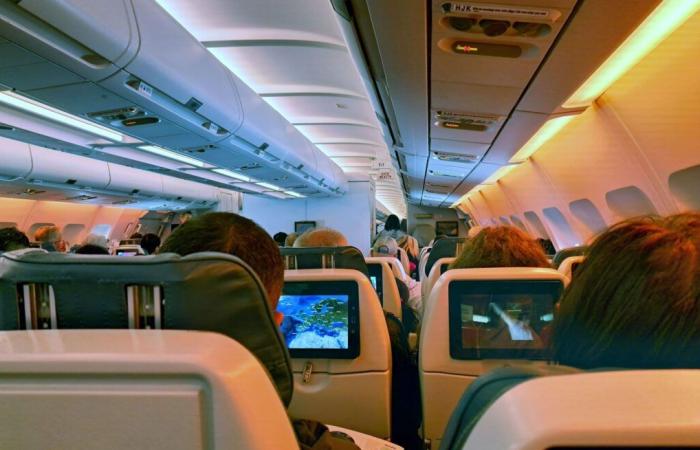This text is the answer to a reader’s question sent to the Courrier de l’Économie team. To subscribe, click here.
Why is it that, in air travel, you have to pay for the seat and baggage? Shouldn’t the price indicated include a seat chosen when purchasing the ticket as well as baggage?
It’s hard to resist the temptation to book a discount ticket to Paris, Cancun or New York as Black Friday approaches. But behind these attractive offers lies a major trend among air carriers: that of no longer including hold baggage, seat selection or on-board meals, services which have become a luxury which quickly increases the bill.
“If you want any service, you have to pay. This is the new way of traveling now and you have to get used to it, there will be no going back,” warns Mehran Ebrahimi, director of the International Observatory of Aeronautics and Civil Aviation and professor at UQAM.
Over the past decade, major airlines have one by one cut services once included in the base price of a plane ticket. If you opt for the cheapest fare category in economy class today, you have to draw a line under your free checked baggage and pay extra. In many cases, you will have to pay a fee to pre-select your seat, obtain a meal or access entertainment.
“Less for the same price”
Travelers therefore have the impression that flight prices have increased little, or even decreased, but they are facing a new form of “reflation”. “Like at the grocery store, they have less for the same price,” notes Mr. Ebrahimi. Companies are creating new categories of so-called “low-cost” seats, but the prices are similar to those of the old categories, which included more services. »
Not only do these additional costs spread to all services on board, but above all they are increasingly higher. “Three or four years ago, it cost me about $50 to reserve a seat with extra legroom. Today, I have to pay around $100,” the professor gives as an example.
Baggage fees have also skyrocketed. In ten years, the cost of checking baggage has increased by at least 40%. “The suitcase has become the cash cow of companies,” maintains Mr. Ebrahimi. In 2023, worldwide, baggage fees earned air carriers nearly $33.3 billion US dollars (more than $46.5 billion Canadian dollars), or 4.1% of the total of their income, according to the consulting firm IdeaWorksCompany.
In the last year alone, WestJet, Air Canada, American Airlines and United Airlines have in turn increased the fees for checking a first checked bag by $5 for their cheapest seat category. A passenger now pays between $35 and $42 to bring their suitcase into the hold with Air Canada, and between $45 and $54 with WestJet. “Unless you pay for a plane ticket in a more expensive category which includes luggage,” notes Mr. Ebrahimi. But paying more for your suitcase or your ticket is the same thing. »
“It mixes people up and makes shopping for a ticket more difficult. It’s difficult to know what is included or not in order to then be able to compare apples to apples,” laments Sylvie De Bellefeuille, director of legal services at Option consommateurs, arguing that it is often necessary to read the little notes footer or search the carrier’s website to understand what the ticket category includes.
Limits not to be exceeded
The addition of ever-higher ancillary fees was inevitable, according to Mr. Ebrahimi. He recalls that it was low-cost carriers who popularized this way of doing things in the 1980s. Wishing to offer affordable flights to democratize travel, they reduced ancillary services to carve out a place in the market.
Rising fuel costs, operating costs, fluctuating ticket prices and growing competition eventually convinced the big names in aviation to follow the trend. “Companies have no choice if they want to continue to offer attractive prices for travelers,” continues the professor.
And then? “After the checked baggage, it’s the cabin baggage that we will pay for,” he predicts. Some low-cost carriers, such as Sunwing, Flair Airlines and Porter Airlines, have already started charging for transportation.
“How far will we go? It is the rules of aviation which will set limits. We saw this when Ryanair wanted to charge for using the toilets and considered having people travel standing. On the security side, it does not work,” notes Mr. Ebrahimi. He adds that there is an acceptable limit for customers that companies cannot cross, at the risk of losing travelers. “And an empty seat is very, very expensive for a company. »






